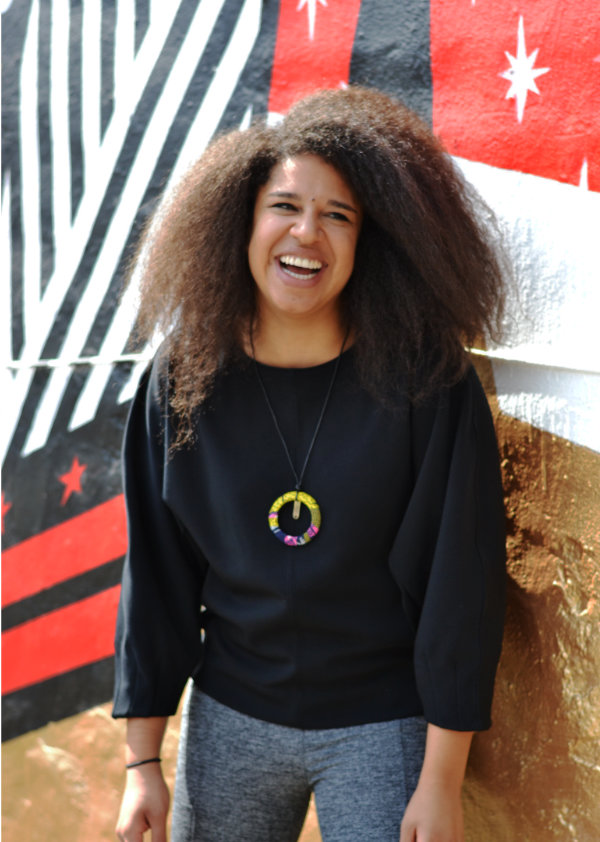Sending this lovely friend of mine lots of love as she travels throughout the Middle East and heads back to live in South Africa! Thank you for your support and for sharing your story.
“My evolution to wearing natural hair was very natural in that it was passive. I decided to stop relaxing my hair because I didn’t feel like going to the salon. Over time, I began to notice that my hair was big and fabulous and people kept complimenting me. It kind of caught me by surprise, so I started taking more ownership of it.
My mom is an immigrant, born and raised in Iran and my dad is black American. As a child, my mom would send me the hair salon because she didn’t know what to do with my hair. I have vivid memories of crying when I was a baby while my dad attempted to get all of the tangles and knots out of my hair. Doing my hair was such a task, that my mom and dad would alternate days to comb it.
I’m very conscious of what I look like walking down the street because I know that people are looking at my hair. It’s not just natural–it’s big and takes up space which tends to shock people. I’ve had the most crazy and hilarious things happen to me when my hair is down. People will come up to me and they’ll tell me how much they love my hair. I’ll have women come up to me and try to touch the top of my hair without asking because they think that it’s a wig.
When I was in South Africa for Peace Corps, I had a white South African man walk up to me and say, ‘I love your hair. We must kiss.’ Before I was able to say ‘thank you’ he kissed me then casually smiled and walked away. Because of South Africa’s unique history with civil rights and race relations between black and white South Africans, I didn’t often get advances from white South African men when I lived there. I laughed so hard, but I know that I have friends who would’ve punched the man in the face for randomly kissing them because of their hair. I take it all in stride, however.
It’s important for me to be a bridge for understanding between people of multicultural backgrounds. If my hair starts a conversation around what it means to better understand the lived experience of other people then that’s a good thing. If hair is the way to be that connection and have conversations about what it means to be multicultural then that’s cool with me.”

